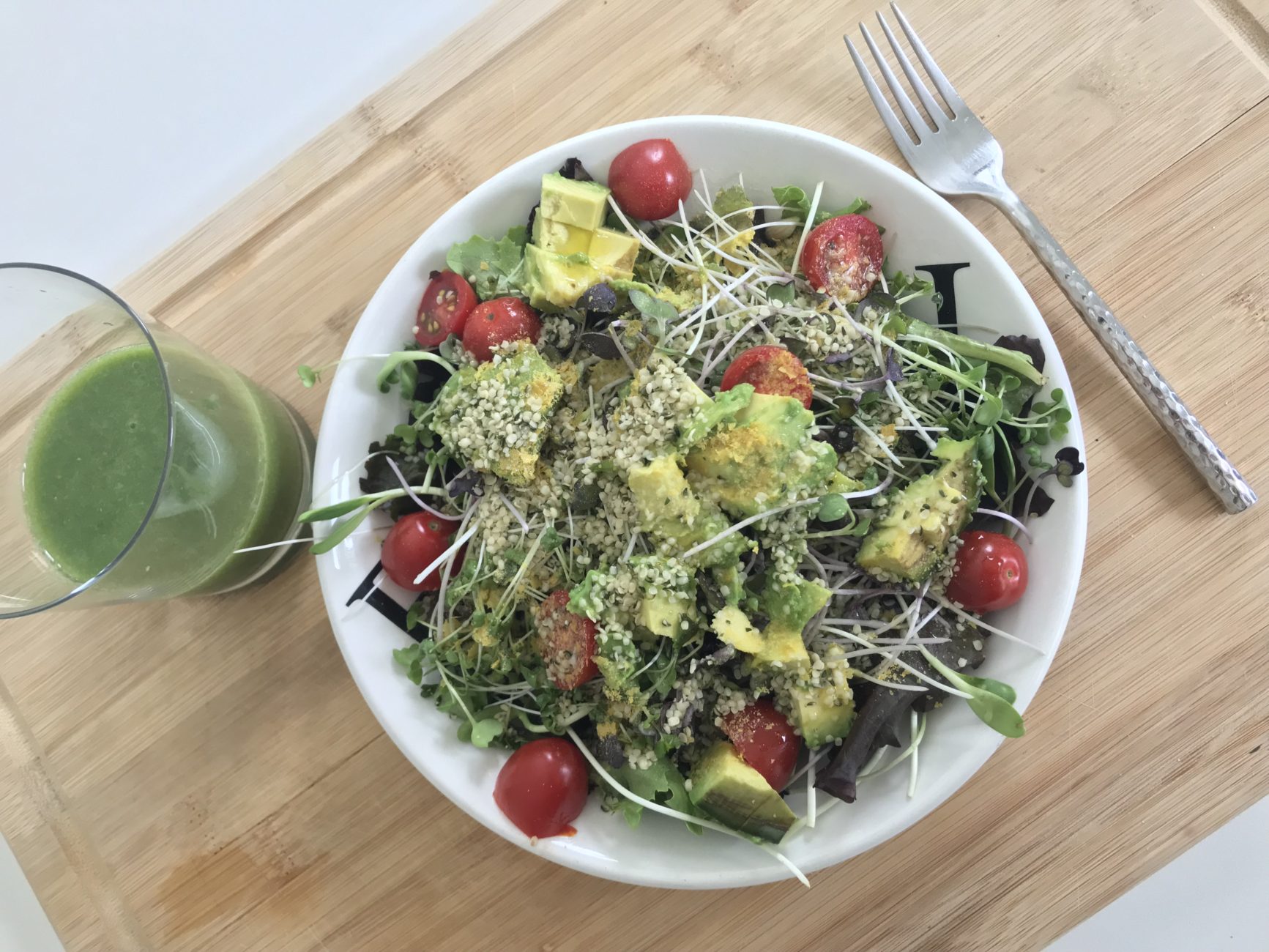If you listened to my most recent podcast I shared my Fall Intentions and one of them was to add more microgreens into my diet as much as possible. I recently made a new IG friend with Kassie’s Garden @healthy_gains_microgreens whose owner Sharmaine grows her own organic and Non-GMO microgreens. I have really been loving adding them to my salads or eating them plain on their own with some lemon juice, salt & pepper and very light oil.
Today I wanted to share WHY I love microgreens and why they are so beneficial to our health. So, let’s get into it.
To get right to the point: Microgreens are a functional food, meaning they promote health and prevent disease. Microgreens are the seedlings of vegetables and herbs. Once the seed of an herb or vegetable begins to grow, it is considered a sprout, then once the sprout begins to grow, the baby plant is considered a microgreen!
“Microgreens are essentially vegetables and herbs that haven’t hit puberty yet,” explains registered dietitian Leah Silberman, RDN, founder of Tovita Nutrition. “They’re the teeny-tiny versions of your favorite veggies and herbs like broccoli, kale, arugula, cabbage, watercress, basil, and cilantro, which are harvested after just seven to 14 days, when the first little shoots sprout.“ (source)
So, sprouts and micro greens are not the same thing but both have amazing health benefits for us. The micro versions actually have been proven to pack more punch than their full grown counterparts! (source) Microgreens are also 100 percent bioavailable which means we can absorb all the nutrients and won’t pee them out.
Research shows that microgreens eaten when they are just a few inches tall are packed with antioxidants and many health-promoting nutrients. One of the main reasons I love them is that they are a stellar source of Vitamin C, which is an antioxidant that protects us from harmful effects of free radicals.
A 2012 study on microgreens reported that even the microgreen sample that had the lowest levels of vitamin C contained a whopping 20 milligrams of vitamin C per 100 grams – that’s almost twice the amount of vitamin C found in tomatoes! (Source)
One animal study fed rats a high-fat diet supplemented with red cabbage microgreens. The microgreens reduced weight gain by 17%, slashed bad LDL cholesterol by 34% and cut triglycerides by 23%.
From Medical Medium: High in mineral salts that are involved with neurotransmitter chemical production, sprouts and microgreens also support the brain with amino acids and enzymes, pull toxic heavy metals from the brain, and help rejuvenate and strengthen neurons—which ultimately helps the body in reversing Alzheimer’s, dementia, brain fog, and memory loss. (source)
Microgreen Tip: Be sure to eat them within the week, as they will lose nutritional content and start to smell.
These are just a few of the main reasons I am adding microgreens into my rotation, let me know what you think below!
